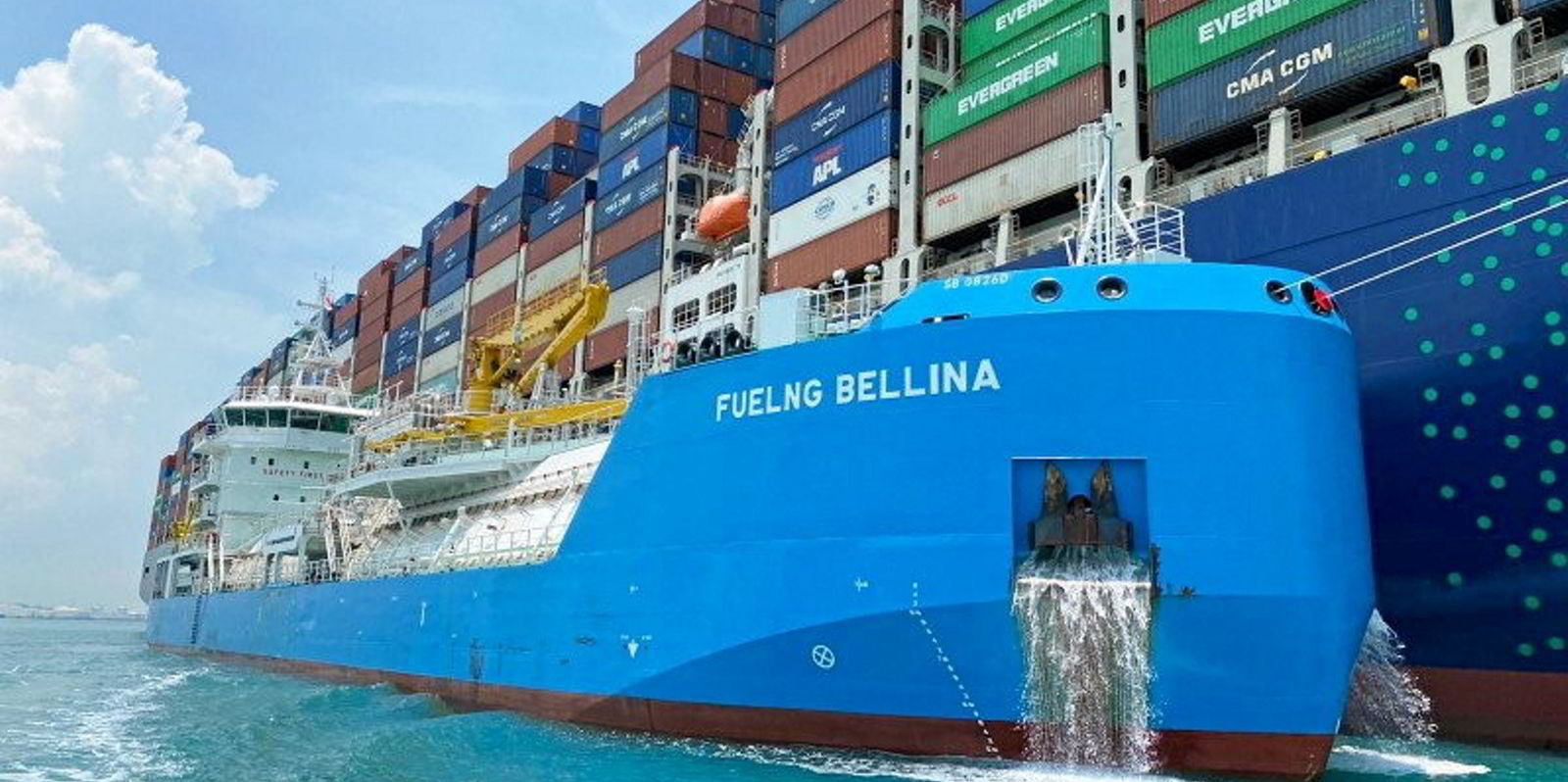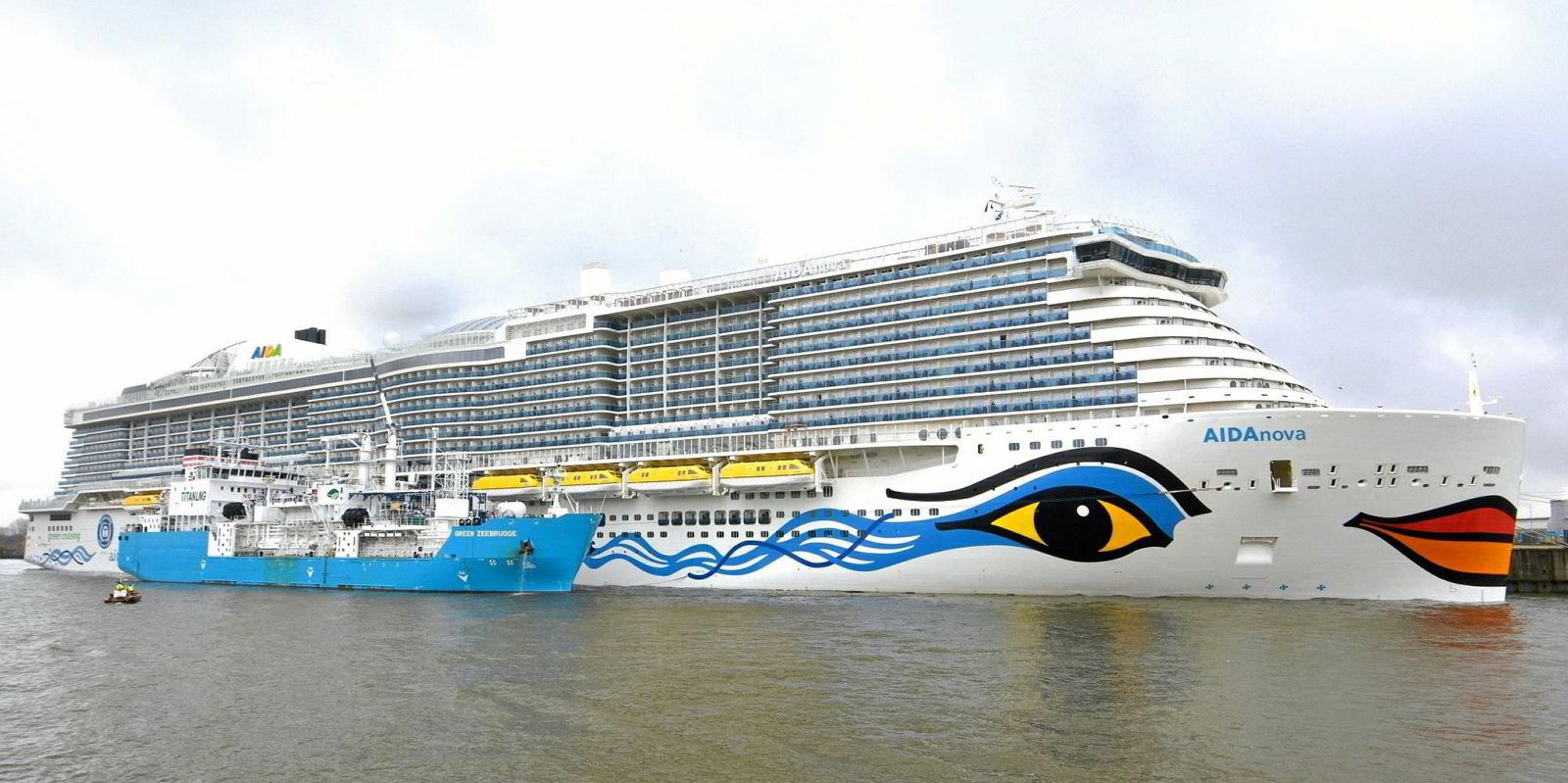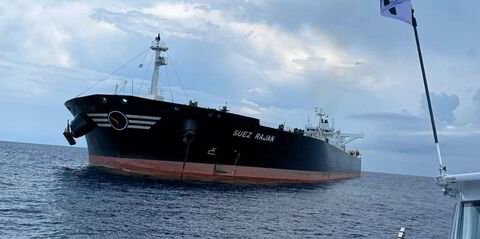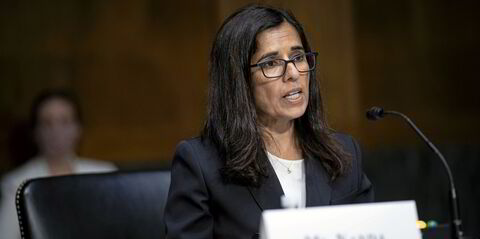The net-zero emissions 2050 target is only one ship lifecycle away and there is no time to waste.
This was the message that Shell’s senior vice president and head of shipping and maritime Karrie Trauth told shipping delegates at Moore Stephens-BNP Paribas shipping conference, which was held during Singapore Maritime Week.
“We need to use the time that we have wisely. Breaking this deadlock of decarbonisation starts with small steps to build foundational changes now,” said Trauth.
She said it is certain that it will take time for zero and near-zero emissions fuels for shipping to be scaled up and become commercially viable. But this should not delay the actions that the industry can take today.
She added that the industry must make the transition through viable solutions that are currently available.
Trauth pointed out that energy efficiency and lower carbon fuels are two categories that the industry can make the transition.
“For our vessels transporting multiple products around the world, the most valuable cargo they hold now is the data that they generate on their voyages. With that data, we can continue to improve operational efficiency and take advantage of energy-efficient technologies,” said Trauth.
“This not only helps decarbonise shipping, reduce our emissions today and help us meet the near-term compliance targets, but it also plays a vital role in unlocking future strategic pathways to reaching that goal, where lower energy density fuels are expected.
“At Shell, we firmly believe that energy efficient technologies are an essential driver of our decarbonisation efforts, and they should be a priority for the entire industry today.”
Trauth said the industry also needs to explore alternative fuels such as LNG, biofuels as well as biodiesel as they are available, flexible and scalable today, and can help on that journey to zero.
She said the global orderbook needs to be increasingly dominated by dual-fuel vessels, although 40% of newbuildings currently on order are dual-fuel ships.
“Dual-fuel vessels, offer the flexibility to operate in both conventional and alternative fuels as that supply is available. And this optionality helps to reduce, although not eliminate, the risk of steering those assets into the future, something that’s particularly important to shipowners and charters today in the early stages of energy transition,” she said.
Trauth said LNG provides flexibility and is the lowest carbon marine fuel available at scale today.
The fuel offers significant greenhouse gas emissions reductions compared to very low-sulphur fuel oil and outperforms conventional marine fuels in terms of reducing pollutants.
In the longer term, LNG could offer a pathway through bio-LNG and potentially synthetic or e-LNG of the future, all of which can be supplied through existing infrastructure today.





